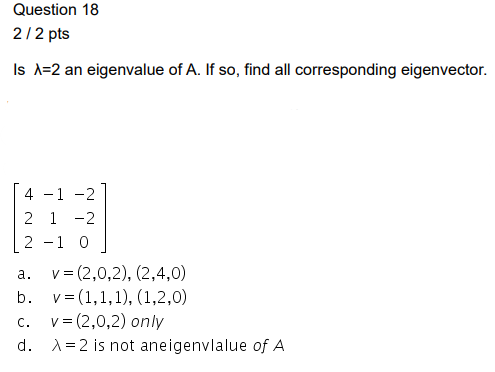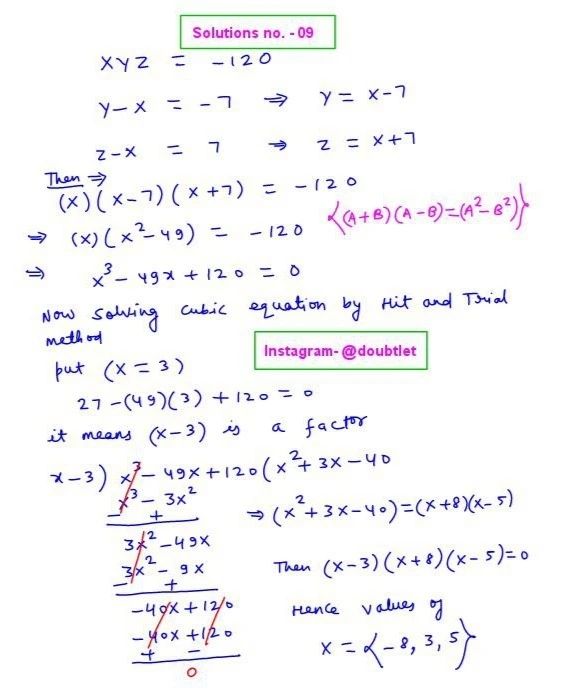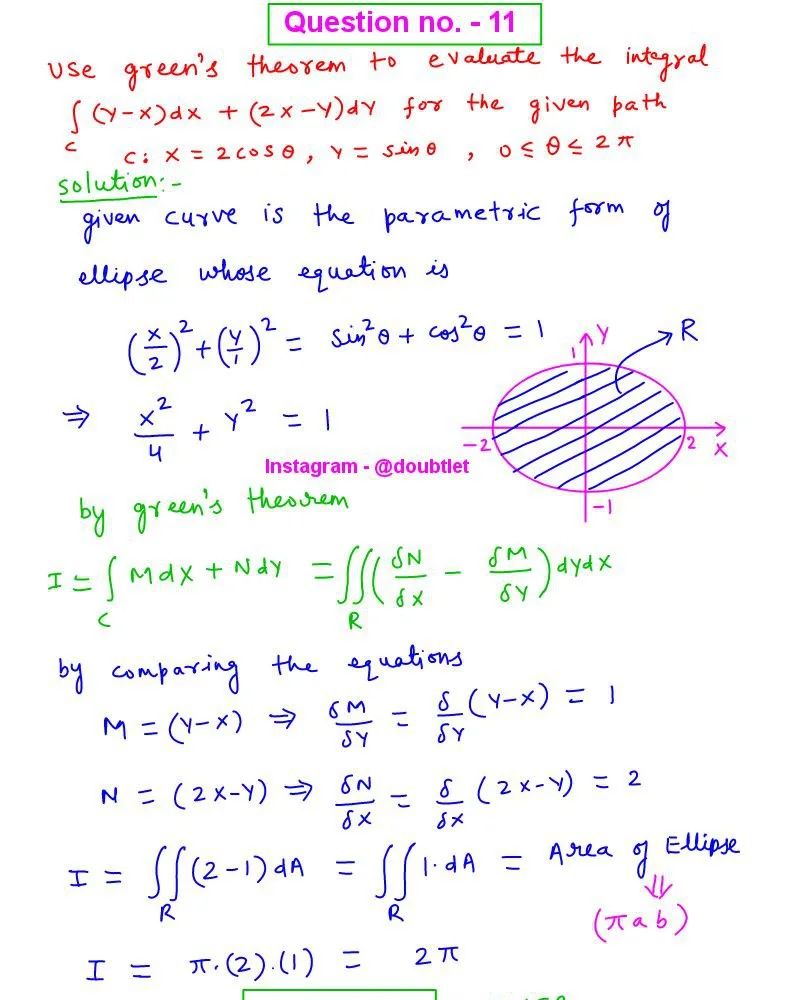









Question :
Is an eigenvalue of ? if so, find all corresponding eigenvectors.

Solution:

Neetesh Kumar | October 21, 2024
Linear Algebra Homework Help
This is the solution to Math2B Course: Linear Algebra
Final Exam Question Number 18
Contact me if you need help with Homework, Assignments, Tutoring Sessions, or Exams for STEM subjects.
You can see our Testimonials or Vouches from here of the previous works I have done.
Get Linear Algebra Homework Help
Step-by-step solution:
To determine if is an eigenvalue of , we need to solve the equation:
Eigenvalues and Eigenvectors Calculator
Where is the identity matrix, and is the eigenvector corresponding to the eigenvalue .
Step 1: Compute
First, calculate the matrix :
This gives:
Step 2: Solve the system
Now, solve the equation:
This results in the following system of linear equations:
Notice that all three equations are the same. Simplify the system to:
Step 3: Express solutions in terms of free variables
We have one equation and three unknowns, so two of the variables are free.
Let's express in terms of and :
Let and , where and are free parameters. Then:
The general solution is:
Thus, the eigenvectors corresponding to are linear combinations of the vectors:
Final Answer:
The correct answer is (a): and .
Please comment below if you find any error in this solution.
If this solution helps, then please share this with your friends.
Please subscribe to my Youtube channel for video solutions to similar questions.
Keep Smiling :-)
Comments(0)



Leave a comment